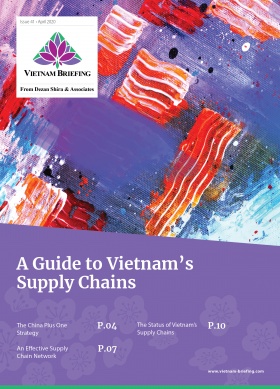Vietnam Proposes Corporate Income Tax Cut to Boost Economy after COVID-19
- As Vietnam’s economy recovers from the pandemic, the government has proposed a cut in corporate income tax of 30 percent to boost cash flow.
- The proposal would apply to the 2020 financial year and in particular help small and medium enterprises.
- If approved, the CIT reduction will help businesses improve cash flow, though they must assess their eligibility carefully or face penalties at a later stage.
In line with recent tax breaks and incentives to boost the economy following COVID-19, Vietnam’s National Assembly is discussing a draft resolution to cut corporate income tax (CIT) by 30 percent for 2020. The reduction would be applicable for companies, public enterprises, and other organizations including small and medium enterprises (SMEs), provided they meet certain conditions.
Proposal to benefit SMEs
The proposed regulation is under discussion primarily to help SMEs overcome financial difficulties caused by the pandemic, while also improving cash flow for business development and enhancing their competitive position.
This proposal is expected to provide SMEs with a considerable tax break, allowing them to expand their business scale, resulting in a more substantial contribution to the State Budget.
Similar to the earlier incentives on the deferral of tax payments, taxpayers will be responsible for self-assessment of their eligibility for tax reduction before reducing their quarterly provisional CIT as well as their annual CIT payable amount for 2020 accordingly.
Government remains committed to recover economy responsibly
The proposed reduction underlines the government’s commitment to businesses, which have suffered from financial hardship without the widespread giveaway of tax breaks.
In this context, SMEs account for approximately 97 percent of total businesses in Vietnam. If this CIT reduction is applied, most businesses would be eligible for the tax reduction, which may result in unfair competition between small and medium businesses that possess significant advantages such as capital, revenue, skilled labor, and technology.
While most officials have agreed on CIT reduction, opposing members have argued that the resolution should only apply to businesses that have faced significant losses due to the pandemic. Thus, to avoid any unfair tax breaks to profitable businesses during the pandemic, the scope of the draft is expected to be more stringent once finalized.
Criteria for CIT reduction
The expected criteria allowing SMEs eligibility for the proposed CIT reduction are as follows:
- Total revenue in 2020 does not exceed the VND 50 billion (US$2.2 million) threshold;
- The average number of employees subject to social insurance during 2020 is below 100 people; and
- Total revenue in 2020 significantly decreases (by approximately 30 percent) in comparison to that of 2019.
As can be seen from the aforementioned criteria, taxpayers should be able to justify financial loss to their current business situation compared to that of the 2019 financial year in order to become eligible for the proposed CIT reduction. Therefore, businesses established in 2020 may not qualify for the proposed tax breaks.
Further, the tax reduction is primarily based on the principle of self-assessment as stipulated in the Law on Tax Administration. Thus, business enterprises are expected to review their actual business circumstances and self-assess their eligibility for such tax breaks.
Follow our alerts to remain apprised
This insight is a summary based on the recently proposed draft resolution and does not constitute professional advice. Businesses should continue to follow our alerts for updates once the resolution is officially issued.
For further information and assistance, please contact our tax, payroll, and HR professionals at Dezan Shira & Associates.
About Us
Vietnam Briefing is produced by Dezan Shira & Associates. The firm assists foreign investors throughout Asia from offices across the world, including in Hanoi and Ho Chi Minh City. Readers may write to vietnam@dezshira.com for more support on doing business in Vietnam.
- Previous Article Vietnam Increases Personal Income Tax Deduction for 2020
- Next Article Tax, Accounting, and Audit in Vietnam 2020 – New Publication from Dezan Shira & Associates































